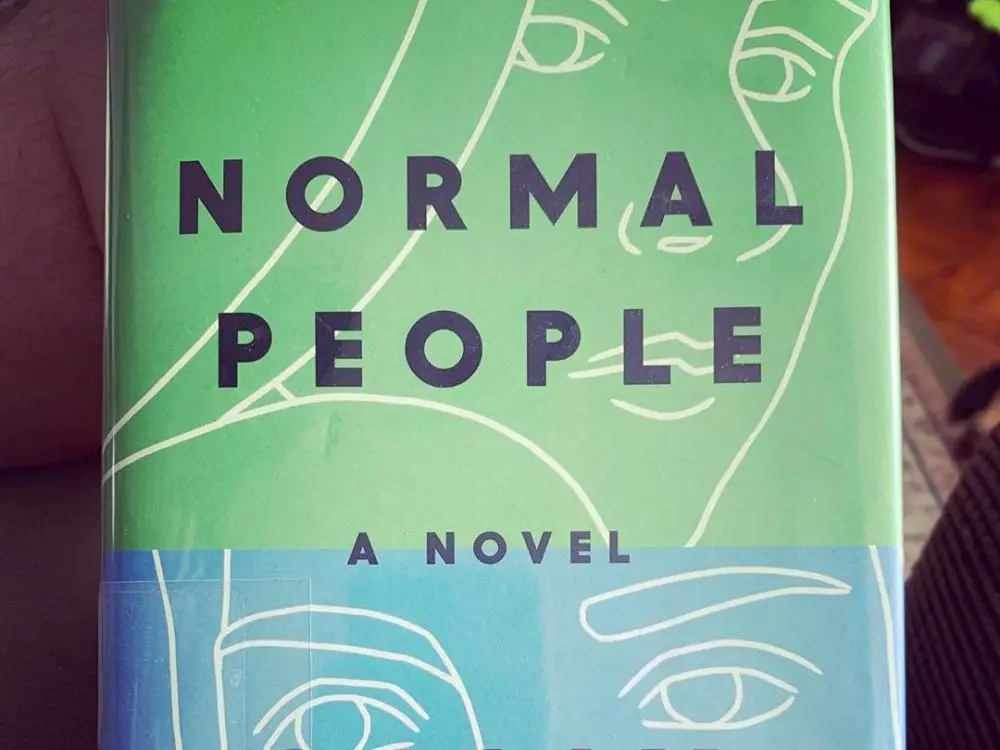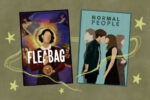“Normal People” is the sophomore project by Irish author Sally Rooney. Hailed by The New York Times as the first “Great Millennial Writer,” the acclaimed author of “Conversations with Friends” builds an unequivocal and discursive novel from the foundation of two flawed characters over the course of four years.
Long-listed for the 2018 Man Booker Prize, winner of “best novel” at the 2018 Costa Book Awards, ranked 25 among The Guardian’s “best books of the 21st century” — is this novel really that great?
The book gathered international attention and recognition. As welcomed as praise can be, it’s often quite dangerous, creating easy disappointment and expectations that can’t be met. Where professional critics rave, many “everyday readers” were not left impressed. One Goodreads reviewer posted “it was a book club read” another “Whoa … guys … I just finished Normal … man, I just … I don’t know … what am I, what am I, uh, missing? This, uh, this … this wasn’t good. Not good at all.”
“Normal People” will also be adapted as a 12 episode TV show airing on Hulu sometime in 2020. The trailer is already available for viewing. In addition to the press the novel is getting in its own right among the literary community, it will most likely only intensify when the series airs. I wanted the opportunity to decide if this novel was deserving of the love or hate, interpreting it for myself before judging it through someone else’s eyes.
https://www.instagram.com/p/B52X2D1nSbR/?utm_source=ig_web_copy_link
Set in Carricklea, Ireland, Marianne and Connell meet in high school. Marianne is unlikable, friendless and rich. Connell is a football star, popular and self-conscious. Connell’s mother works as a cleaner for Marianne’s family. Divided by economic status and social class, they start a secret, sexual relationship that ends due to Connell’s cowardice and intimidation around how his friends will react.
Months later, reunited at Trinity College in Dublin with roles seemingly reversed, an ill-defined, friends-with-benefits, intense love affair that transpires over four years begins. The novel only describes the most important moments in their lives and relationship with each chapter jumping forward three weeks, six months or five minutes, when appropriate.
With the work focusing primarily on the characters, it’s not surprising that some of the less flattering feedback is focused on the personalities of Connell and Marianne. Rooney does not try to hide that the characters are fundamentally flawed. It’s true, there are moments in the book where neither character seems to have any redeeming qualities.
Connell never seems to say what he really thinks, and even rarer does he act on his thoughts. Marianne pretends to not care about her popularity and newfound likability post-high school, though often seems to seesaw between feeling undeserving of it and doing anything to keep it. Both characters self-sabotage their relationship over and over again to the point it appears second nature to them.
However, it’s undeniable their pasts don’t play a role in who they are. Marianne comes from an abusive household and Connell comes from a single mother that gives him such trusting freedom that he becomes indecisive about everything.
There seems to be very little character development from the beginning to the end of the novel. Of course, they’re more mature, as most people are as they get older and experience more of life, however, they haven’t fundamentally changed. The ending, without giving away too many spoilers, leaves readers wondering if they’ve learned anything after all they’ve been through. It’s inconclusive and open to interpretation; due to this, I was left with an overwhelming sense of “here we go again.”
Even so, I fell in love with the book in the same way the characters seemed to fall into each other. Much like their relationship, it was confusing, frustrating and often made the same mistakes more than once, but I experienced an undeniable, magnetic connection that kept me turning page after page.
“Predictable,” “not exciting,” even “cliché” were the overused words amongst reviewers to describe the novel. It seemed that it chalked down to the idea that it was an overdone “love story,” and many readers felt the novel didn’t have enough depth to be worthy of the praise it is accumulating.
One Goodreads reviewer, Justin, commented about the youthful quality of the novel. It wasn’t an uncommon opinion that the novel read somewhat like a young adult novel that wasn’t relatable for anyone over the age of 25. While I do fit into this description of the “ideal reader,” I found the novel to be a humanizing experience that depicted the reality of what it means to be alive.
Love stories are often seen as easy. There are thousands of them and what’s original about an on-again-off-again relationship? I think this is where a lot of readers are getting tripped up. To me, this novel is not a love story, it’s a dive into the human psyche with the observation that most experiences in life involve love and other people. The fact that it centered on a romantic relationship is only one of the many observations of what is “normal” in life.
The title of the book comes from the quote thought by Marianne: “I don’t know why I can’t be like normal people.” Being misunderstood might be the most prevalent theme throughout the novel. But, feeling “not normal” might be the most normal thing about humans.
We look to authors, artists and filmmakers to offer some “deeper” meaning to life. We want them to tell us something we don’t know, something we haven’t considered before, something profound. We look to find ourselves in art and learn about who we are.
Rooney only gives us a reflection when we want a reason. Connell and Marianne lack a certain depth and development because most people do. The reality is that all most people are is normal. Isn’t it easier to criticize Connell and Marianne for being “cliché” than admit that most of life is unoriginal? Isn’t it easier to pretend we don’t fit in because we’re afraid we do?
By conforming to “overdone” plots, characters and themes, Rooney is rebelling against all expectations of what a great novel should be. Her writing is pointed, precise and unapologetic. Reading it feels like going to The Met and finding framed mirrors instead of paintings.
















